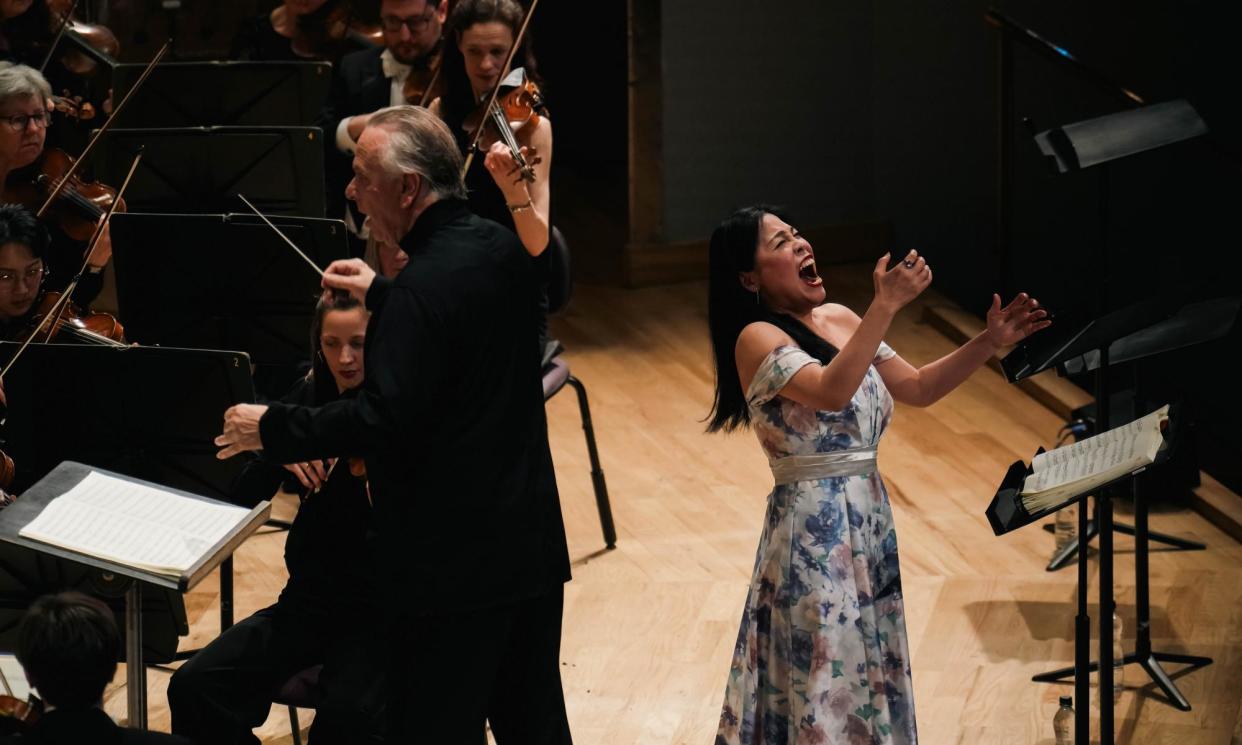Simon Boccanegra review – vast forces bring Verdi’s ‘fiasco’ to vivid life

Twenty-five years separate the action in the prologue and first act of Verdi’s Simon Boccanegra, and very nearly the same stretch of time elapsed between the opera’s first incarnation – whose opening night in 1857 the composer wrote off, a touch unjustly, as a “fiasco” – and its revised second version, premiered in 1881. The latter has more or less kept a foothold in the standard repertory ever since; but it’s the 1857 original, which Opera Rara, those tireless travellers of opera’s byways and branch lines, have polished up in a brand new edition for a studio recording and this concert performance at Bridgewater Hall.
Contours of plot and libretto remain largely intact. The famous Council Chamber scene is the most keenly felt absence – the town square confrontation, which instead concludes Act II, has plenty of personal drama but far less of its replacement’s febrile patriotic charge – and a smaller role for Paolo Albiani means his treacherous machinations lose their Iago-like bite. But the most palpable difference is in the music itself: starker and more declamatory for both orchestra and singers, without the lyrical sweep and splashes of colour that would enliven the 1881 revision.
Colour aplenty was to be had on this occasion, however, from Germán Enrique Alcántara in the title role: his elegant, supple-toned Boccanegra was wholly plausible as corsair, doge, and anxious father. As his long-lost daughter, and at the centre of all the opera’s male attention, Eri Nakamura was a touching, though at times underpowered, Amelia, spinning out some gossamer top notes but not always as expressive in the midst of an ensemble. Tenor Iván Ayón-Rivas was a model of Italian ardency as her lover Gabriele Adorno, while bass Will Thomas was voluminous of voice, if short on nuance, as the conflicted patriarch Fiesco, and baritone Sergio Vitale did his smoothly-sung best to earn a few pantomime boos.
Joined on stage not only by soloists and the Hallé orchestra, but by the Chorus of Opera North and 16 additional singers from the Royal Northern College of Music, Sir Mark Elder marshalled his vast forces with typically sure-footed panache, drawing burnished, coppery tone from the Hallé strings in particular, and vivid, precise performances from both choruses.
It’s fair to say this early Boccanegra won’t be supplanting its successor in the canon any time soon. Nor does it need to: it succeeds on its own merits, as a broadening of horizons, and a reminder that when it comes to Verdi, even a so-called fiasco is generally worth a second look.

 Yahoo News
Yahoo News 